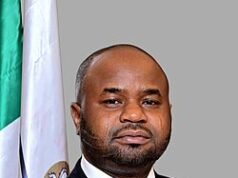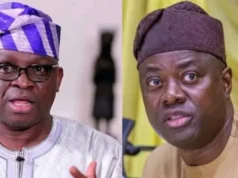It is an undisputed fact that the closest arm of government to the people at the grassroots is the local government. This is one tier where government’s impact is supposed to be felt directly by the entire population of about 46.5% Nigerians living in the rural areas and more than 70% of the rest 53.7% of the nation’s population found in the urban centers. The success or failure of this tier of government has direct impact on majority of Nigerians as it has been the case for more than 45 years.
However, most of the 774 local government councils and six Area Councils constitutionally recognized in Nigeria have been incapacitated from performing their statutory functions as assigned in the fourth schedule of the 1999 Constitution (as amended). Pointedly, major cause of palpable inefficiency in the local government system has been identified by many authors and pundits to include but not limited to; lack of autonomy for the councils. This lack of autonomy has directly put the local government councils at the mercy of their various state governors who act as emperors on them.
Succinctly put, we have many impediments against the wellness of the third tier of government in Nigeria and having identified most of the governors as the major obstacle to the realization of local government autonomy, we must x-ray the factors which aid their despotic tendencies. The most important factors include; Conduct of local government elections by State Independent Electoral Commissions, existence of State/Local Government Joint Allocation Accounts and Constitutional provision for Caretaker Committee for a period of three months. A constitutional amendment is required as stated in section 9 of the Nigerian constitution to free the local government from the bondage of the state governments. On two occasions, the National Assembly did pass constitutional amendment bills to grant autonomy to the councils and the bills got frustrated by the antics of most governors who ‘ordered’ their respective State Houses of Assembly to refuse concurrence to the bill and thus killed it. This was so because in order to amend any part or the whole of the Nigerian constitution, Section 9 (2) of the nation’s constitution says….’a simple majority of votes from (at least) 24 out of 36 states of Nigeria must concur’.
With the ruling APC now having 20 out of the 36 state governors, in its kitty, in this dispensation and the strong influence of President Bola Ahmed Tinubu, he should be able to break the jinx by having the required 24 states to execute the required constitutional amendment. There is no doubt that Section 7 (1) of 1999 constitution (as amended) empowers the state to make laws and provide for democratic local government in their domain. It says ‘The system of local government by democratically elected local government councils is under this Constitution guaranteed; and accordingly, the Government of every State shall, subject to section 8 of this Constitution, ensure their existence under a Law which provides for the establishment, structure, composition, finance and functions of such councils’. This has been grossly abused. Again, the constitutional power assigned to the various State Independent Electoral Commissions in Nigeria, in section 197(1) as well as third Schedule, part B of the constitution have been grossly abused by almost all state governors in Nigeria.
Apparently, most governors hide on the fact that most federating units in the world consists of two federating units (federal and the state). They say that local governments should just be administrative units and governors should be able to administer them, dissolve and create as they wish. This was the view of my late boss and former governor of Oyo state, Senator Abiola Ajimobi and many governors. He made this declaration on august 27th, 2012 in a keynote address delivered at a Roundtable on federalism in Nigeria which took place in Chicago U.S.A. However, this was not the view of the creators of Nigeria constitution who referred to it as the third tier of government. Again, no two democracies are the same just like no two federalism are the same. As long as we crave for our home grown democracy, we should be able to crave for our own home grown federalism that will curb the greed of our governors and meet the needs of our populace.
The present imbroglio in Plateau state and scenario playing in Ogun State between Hon Wale Adedayo, suspended Chairman of Ijebu East and the State governor, Prince Dapo Abiodun is a tip of the iceberg in what chairmen face before draconian governors. If elected chairmen faced these predicament and unable to attend to their constitutional responsibilities, you can imagine what a caretaker chairman who derives no constitutional power would in the hand of a governor who put him in that office. The governors don’t know that when such acts are done, it is not the chairman that suffers but the entire people they are meant to serve. In June 2016, Adamawa State House of Assembly reduced the tenure of local government administration to two and a half years. In 2019, Katsina reduced it to two year. In Osun state, former Governor Rauf Aregbesola changed local government system from the presidential to parliamentary in October 2019. If nothing is done at the federal level, this shenanigan will continue and further endanger our growing democracy.
As a matter of fact the way and manner governors treat council chairmen and councilors have reduced the quality of people showing interest in the local government elections. A situation where governors decide and compel project a local government chairman executes is a violation of the essence and need for the local government itself. One of the main reasons of local government creation is to meet the specific needs of the people at the grassroots which are not the same as the general needs of the state. When local governments are allowed to execute any projects at all, such projects are usually imposed based on the interest of the governor and without considering the peculiarity of each of the councils. For instance, there was an occasions when local government councils in Oyo state were forced to finance joint purchase of tractors for farming when such equipment is needed only by the agrarian council and not the ones in the metropolis.
The success of President Bola Tinubu’s administrations will be better seen, felt and enjoyed by majority of Nigerians if the local governments are freed from the governors and Asiwaju has all it takes to facilitate the desired constitutional review. Also, all the bottlenecks standing against the creation of more local government councils must be removed as our population has now skyrocketed from the what it was the last time when the military junta of late Gen. Sani Abacha created the last set of new local government councils. In order for the expected reform to be acceptable to the people, it has to recognize the created Local Council Development Areas and those that may be created within a specific time frame in the country as long as they comply with section 8 of the constitution. Hence all eligible and constitutionally created local government councils and LCDAs will be listed in the fourth schedule of the constitution.
The constitutional provision allowing states to set up caretaker committees at local government level for a period of three months needs to be abolished as this has been used to extend the three months to three years in most cases. The establishments of state independent electoral commissions have been abused in addition to being unnecessary duplication of power to conduct elections. The Independent National Electoral Commission (INEC) employees are not even fully engaged enough because they work for less than six months every four years. This idea of State Independent Electoral Commission (SIEC) serves no meaningful purpose other than wasting scarce resources and legalizing illegality from state governors. So, it has to be abolished for INEC to conduct all elections in Nigeria.
In conclusion, it will not be out of order for the federal government to establish a commission to monitor affairs in the local government or at least a Special Adviser on local government affairs should be appointed by the president. If our nation’s fiscal federalism should be made viable enough to curb corruption at the state level, federal allocations and all financial entitlements to the local government council have to be sent directly to them from the federation account and no governor must have any influence or control over the purse of the LGAs while council officials would be held accountable for whatever they got from the government at the center. This would reduce the ubiquitous mismanagement and misapplication of the local government funds by the state authorities. When this is achieved, it would elevate and promote the local government councils to the level of the third federating units and improve the standard of living of the masses while it would also make the local government the true breeding ground of future state and federal leaders.
Mr. Akinyemi Akinlabi writes from Igbo-Ora. He is a former chairman, Ibarapa Central local government.

































